Suppose we would like to retrieve 15 random children from questions node having this database structured as below:
1. The first (intuitive and discussed) way of retrieving random children from Firebase is to retrieve the whole required parent node (questions as dataSnapshot) and then select some random children on the client-side. This method has been pointed out in many posts, like in this one here .
Obviously, this method has its downsides; for example when querying through a large sized parent node (e.g. over 10.000 children) retrieving such an amount every time would result in a huge bandwidth usage as well as a client side burden. (when we actually require only a small amount of children)
2. Moving on: another approach, as described here which uses an iterator somehow bypasses the whole client side burden, yet the huge bandwidth usage could still occur as we download the whole parent node every time.
3. An interesting approach is described in Tom's answer in this firebase discussion which proposes:
A hacky way of doing this would be to generate a random key and do a query with startAt().limit(1). I have a feeling this could hurt the performance of your firebase though, so this should not be an operation you perform often. We don't have a real random sample function.
This solution actually sounds pretty good, yet I am not sure how it would indeed impact my Firebase.
4. Another silly solution could actually be naming the question ids manually, so to speak, from 0 to N, therefore handling the random group of ids on the client side and retrieving the questions spot-on by knowing the actual name of nodes.
5. And lastly, I have come up with the following solution to which I ask if is more or less viable than the ones presented above: creating another parent containing the question ids only and when needed, one should retrieve this parent which is much "lighter" than questions parent . From there, I would have the specific random ids and I would only need to snipe for those children. To better understand my meaning, please check the below picture:

Now, from this method arises the following issue: is assigning (let's say) 15 eventListeners good practice? Could this actually slow up things? (Note: this applies to methods 3 and 4 as well)
And ultimately, which method is actually the optimal one when querying from a large database for some random children?
